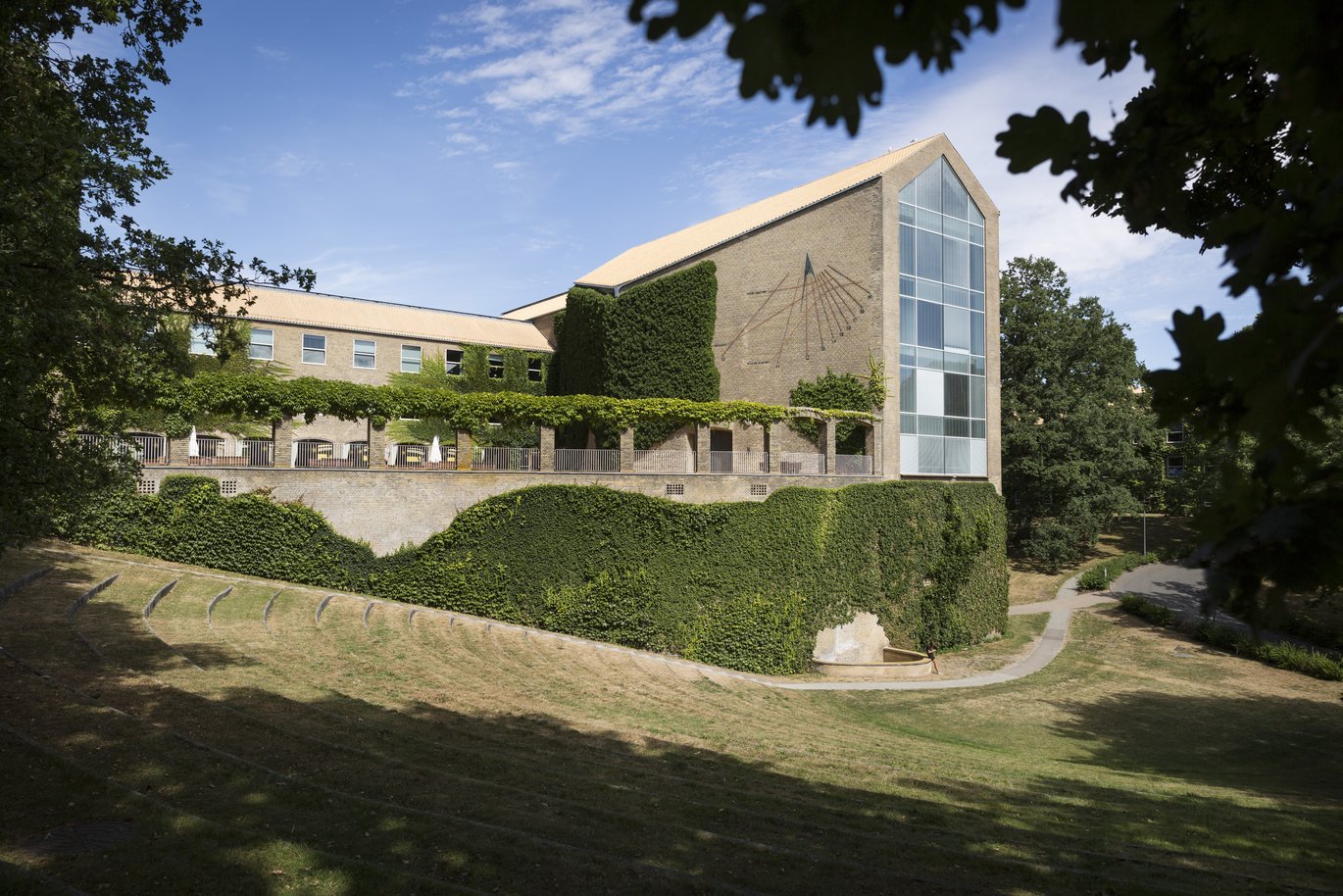Researching the colonial legacies of universities: new collaborations and heritage practices
Aarhus University has won funding for the large project “Colonial Legacies of Universities: Materialities and New Collaborations” (COLUMN). The project is co-financed by the ERC Horizon Europe Program and the Swiss National Science Foundation for a total of 4,483,595 euros.

Nick Shepherd is PI of Project COLUMN at Aarhus University and co-PI at the University of Pretoria, where he holds an honorary position as Extraordinary Professor.
The project asks difficult questions about Denmark’s past and present relationship to colonialism, and the legacies of this relationship in the university. It specifically focuses on Denmark’s relationship with Greenland, seeking to understand Danish coloniality and decoloniality in a global context.
The results of the research will feed into the curriculum in the Masters programme in Sustainable Heritage Management at AU.
According to Shepherd: ‘It is important that students and researchers in Denmark have the kinds of critical literacies and languages through which to address questions of coloniality and decoloniality, otherwise we are on the back foot. My experience in South Africa and the United States puts me in a good position to translate the local experience into a global context.’
Based in the Department of Archaeology and Heritage Studies, Shepherd says: ‘AU needs to train the next generation of Archaeologists from Greenland. This doesn’t just happen organically. We need programmes in place to attract promising students, and we need to look inwards to our curriculum and to the kinds of things that we teach – to see whether they reflect a Greenlandic reality. My hope is that project COLUMN might galvanize these broader conversations at AU.’
COLUMN, which is led by Associate Professor Gertjan Plets at Utrecht University, brings together nine academic and cultural sector organizations in eight countries. PI Nick Shepherd of Aarhus University’s Department of Archaeology and Heritage Studies will convene a group of scholars and civil society partners, including Det Grønlandske Hus (Aarhus). The team will research the colonial history of (European) universities and explore how these legacies and heritage can be addressed and curated.
Collaboration with partners from former colonized countries stands at the core of the project, which sees research around colonial university heritage as a unique opportunity to develop close international collaborations based firmly based on rearticulated power relations. Unique in this project is the inclusion of partners from Suriname and South Africa as PIs in the consortium. Curators from Vietnam, Indonesia, Mexico and other decolonizing countries are similarly included as equal partners in the project. Shepherd, who holds an honoray professorship at the University of Pretoria in South Africa, was instrumental in involving South African researchers in the collaboration.
“This is the first time that the Faculty of Humanities at the University of Pretoria has been awarded a Horizon Europe. To work with COLUMN colleagues asking questions about the nature of universities is humbling. This award shows what is possible if we all dream large,” says Siona O’Connell University of Pretoria (Pretoria, South Africa).
Universities and science, in Europe especially, expanded significantly during the colonial period. Today the legacy and heritage of this entangled history is encoded in the materiality of many European universities: buildings are named after contested figures, research collections have a colonial origin and botanic gardens are silent witnesses of expeditions outside Europe. This project will study the unique and divergent colonial histories of universities and the contested materialities these have produced.
Since science is becoming even more global, decolonization provides a unique opportunity for the European university landscape. Universities in Asia, Africa and South America increasingly define the production of knowledge. Through introspection and profound collaboration with researchers from formerly colonized settings, we build new synergies and force ourselves to transform existing programs and narratives about scientific progress.
The project collaborates with European and international university and academic heritage associations and provides best practices for tackling and curating colonial heritage. These best practices will be based on interventions in Europe and beyond, targeting campus heritage, botanical gardens, ethnographic collections and intangible heritage. Among the outputs of the project will be a series of research and arts-based residencies at Aarhus University, Liverpool University and the University of Pretoria, resulting in a handbook on ‘how to decoloniaze your university’.
The project runs from April 2025 to March 2029 and involves partners in Surinam (Anton De Kom University), the Netherlands (Utrecht University and Studio Louter), Austria (Graz University), South Africa (Pretoria University), Switzerland (Geneva University), Czech Republic (Charles University), Italy (University of Bologna) and Denmark (Aarhus University).
Contact
Nick Shepherd, lektor
Department of Archaeloggy and Heritage Studies
School of Culture and Society
Aarhus Universitety
Phone: + 45 8715 1402
Mail: ns@cas.au.dk
